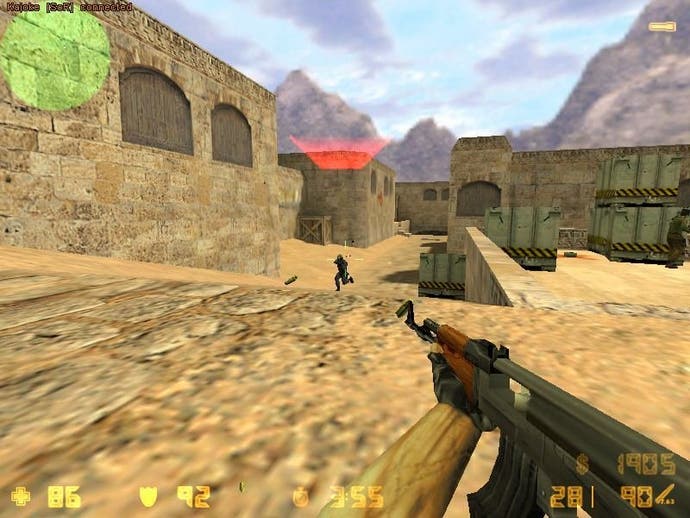Steam vs. Origin: Is Competition Good for Gamers?
EA, GOG, Gamersgate, Gabe Newell weigh in.
If anyone does have the stomach to properly take on Valve, they'll likely have to have very deep pockets. Indeed, when asked what he'd do if wanted to mount a serious challenge, Get Games boss Graeme Struthers cheerfully concedes, "If I really wanted to take on Steam I'd have to go and find a colossal amount of money and buy them."
Not only will a competitor need to court publishers by offering them a bigger cut of the back-end, but they'll also have to pass on some meaningful savings to customers. And with Steam hardly pillaging gamers' wallets as it is, that's a bar many will be unable, or unwilling, to crawl under.
Blizzard veteran and current Runic Games boss Max Schaefer doesn't provide much more in the way of comfort for any would-be usurpers. He tells Eurogamer that their best hopes probably lie in Valve slipping on a proverbial banana skin and doing something to alienate its userbase.
"I think Steam benefits from being an agnostic platform - they push other people's games as much as they do their own. Unless Steam screws something up. That's a way things could change - if they do something that horribly annoys its customers. People don't have a terribly large emotional attachment to where they're clicking to buy their stuff. Right now most things that they want are on Steam. It's sort of a self-fulfilling situation - since everyone is there, that's where everyone goes."
However, there is certainly one area where competitors might be able to find a little elbowroom. Steam's dark, slick aesthetic is largely geared towards the male, core-orientated user. That leaves a huge swathe of the world's gaming population up for grabs, says Theodore Bergquist, CEO of Steam rival Gamersgate.
"Steam has pretty much locked in the hardcore market," he admits. "On the other hand, if Steam has five million paying customers and there are 90 million PC players in the US, it's easy to see who you should go chasing for.
"The next generation of digital buyers are not hardcore gamers, they are more casual consumers in the sense that they don't care about all the overlay features in a platform, they don't want to download a client, and they don't see the point of being locked in. They want to keep it simple - download and play - and they care more about price and selection, rewards and support, things Gamersgate are focusing on."
The other key factor in Valve's success is content. Tying a must-have game exclusively to the platform worked wonders for the developer with Counter-Strike. Attempting to replicate that honey trap is another possible angle of attack. And sure enough, this is where EA's Origin initiative comes in. Of course, the jury is still out on whether forthcoming BioWare MMO Star Wars: The Old Republic is that killer app, but its absence from Steam is undoubtedly a blow for Valve.

Like it or not, EA's Origin store could prove but a taste of things to come, and it may well be single-publisher stores such as these that eat into Steam's bottom line rather than more conventional competition. As digital delivery increasingly becomes the industry standard for PC, it's natural for slow-on-the-uptake publishers to want to make up some ground and wrestle control of their games back from third parties. With a hefty percentage of a game's asking price being skimmed off by Valve, who can blame Riccitiello for wanting to strike out on his own?
"In the traditional physical retail distribution channel, a publisher has to give up 35 per cent of the top-line price in order for the retailer to get their margin for distribution, in addition to the overhead and production costs to manage a physically distributed item. Publishers have accepted that, mostly because they can't do it themselves," explains EEDAR analyst Jesse Divnich.
"In a digital environment, however, the barriers to create a distribution outlet are much smaller. Anyone could create their own digital storefront and pocket the distribution fee that is standard through outlets like Steam - or pass the savings on to consumers."
EA itself argues that not only does it have a right to get involved, but that the arrival of Origin on the download scene is actually a boon for the industry at large
"I am actually a big believer that competition is always good for the consumer," insists EA's European boss Uwe Intat.
"It's not as simple as competition drives prices down. It can but doesn't necessarily have to. But certainly, competition drives creativity because competitors have to come up with innovation. Usually to be successful you put the consumer into the centre of your thinking and of your innovation. So, to have different competitors out there it's usually better for the consumer.








